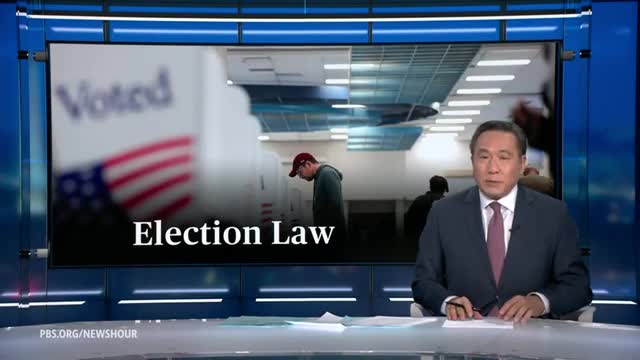Democrats face tight deadline to select new nominee

This article was created by AI summarizing key points discussed. AI makes mistakes, so for full details and context, please refer to the video of the full meeting. Please report any errors so we can fix them. Report an error »

In a recent government meeting, discussions centered around the implications of President Joe Biden's unexpected withdrawal from the presidential race, just weeks before ballots are set to be sent out to voters in North Carolina. Election law expert Rick Hasson from UCLA Law School provided insights into the potential challenges and processes that the Democratic Party may face in selecting a new nominee.
Hasson emphasized that the Democratic Party does not need to make significant changes at this point, as Biden was only the presumptive nominee. The timing of the party's communication with state officials will be crucial, but Hasson believes the transition to a new nominee should proceed smoothly. He noted that legal challenges from Republican parties are anticipated, but he considers them unlikely to succeed, citing the courts' historical protection of major party candidates' rights to appear on ballots.
The conversation also touched on the financial implications of Biden's exit. If Vice President Kamala Harris becomes the nominee, she is likely to retain access to the campaign funds raised by the Biden-Harris campaign. However, if she does not, Biden would need to decide how to allocate those funds, potentially to the Democratic Party or through a super PAC.
Critics from the Republican side have raised concerns about the process of selecting a new nominee, arguing that it undermines democratic principles by not allowing voters to have a say. Hasson countered this by explaining that the current situation arises from Biden's voluntary withdrawal, and that Harris, as part of the original ticket, has already garnered voter support.
As the Democratic Party prepares for its virtual roll call in early August, Hasson believes that any legal challenges will likely be resolved quickly, allowing the focus to shift to the political dynamics of the upcoming election.
Hasson emphasized that the Democratic Party does not need to make significant changes at this point, as Biden was only the presumptive nominee. The timing of the party's communication with state officials will be crucial, but Hasson believes the transition to a new nominee should proceed smoothly. He noted that legal challenges from Republican parties are anticipated, but he considers them unlikely to succeed, citing the courts' historical protection of major party candidates' rights to appear on ballots.
The conversation also touched on the financial implications of Biden's exit. If Vice President Kamala Harris becomes the nominee, she is likely to retain access to the campaign funds raised by the Biden-Harris campaign. However, if she does not, Biden would need to decide how to allocate those funds, potentially to the Democratic Party or through a super PAC.
Critics from the Republican side have raised concerns about the process of selecting a new nominee, arguing that it undermines democratic principles by not allowing voters to have a say. Hasson countered this by explaining that the current situation arises from Biden's voluntary withdrawal, and that Harris, as part of the original ticket, has already garnered voter support.
As the Democratic Party prepares for its virtual roll call in early August, Hasson believes that any legal challenges will likely be resolved quickly, allowing the focus to shift to the political dynamics of the upcoming election.
View full meeting
This article is based on a recent meeting—watch the full video and explore the complete transcript for deeper insights into the discussion.
View full meeting